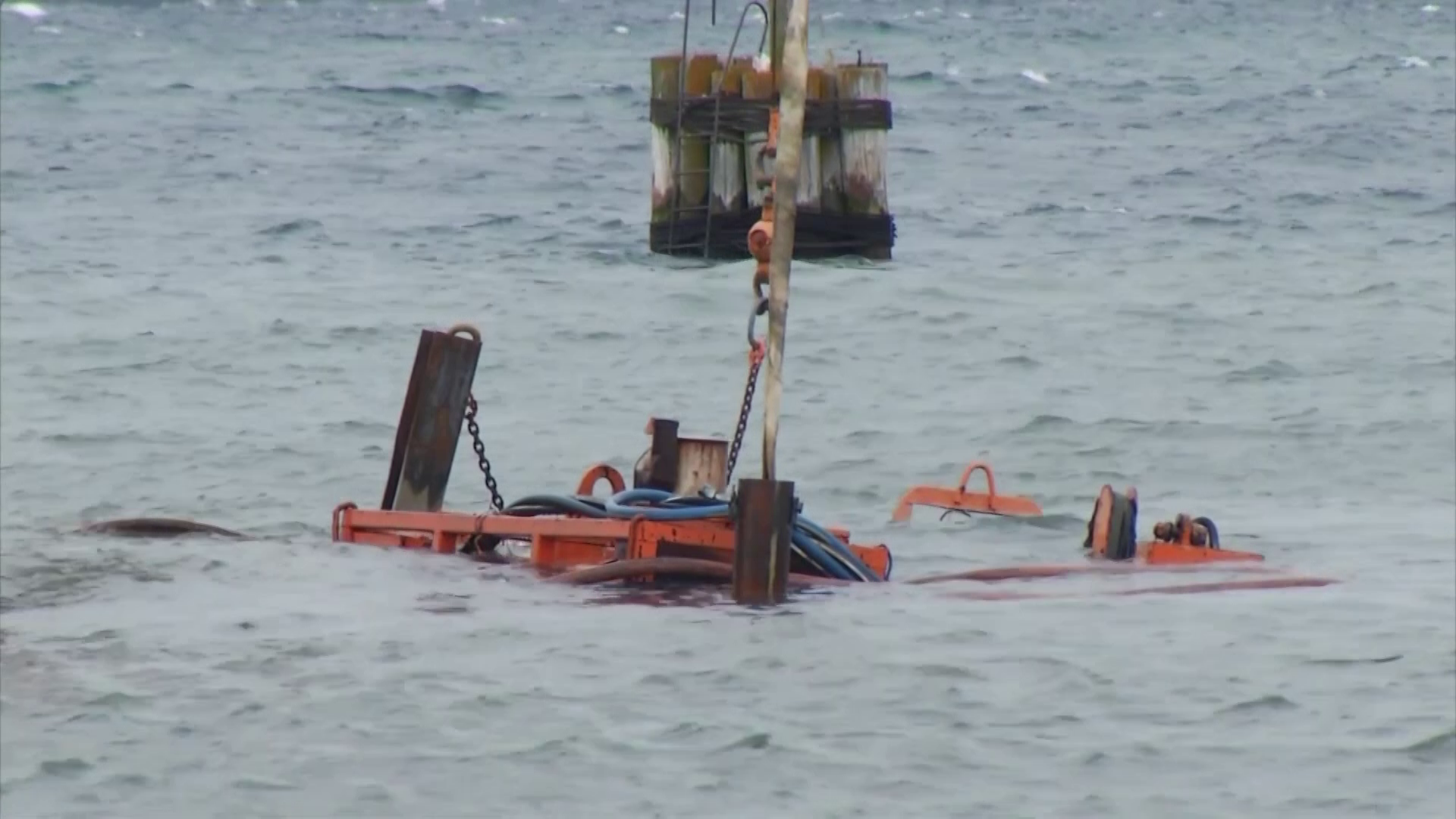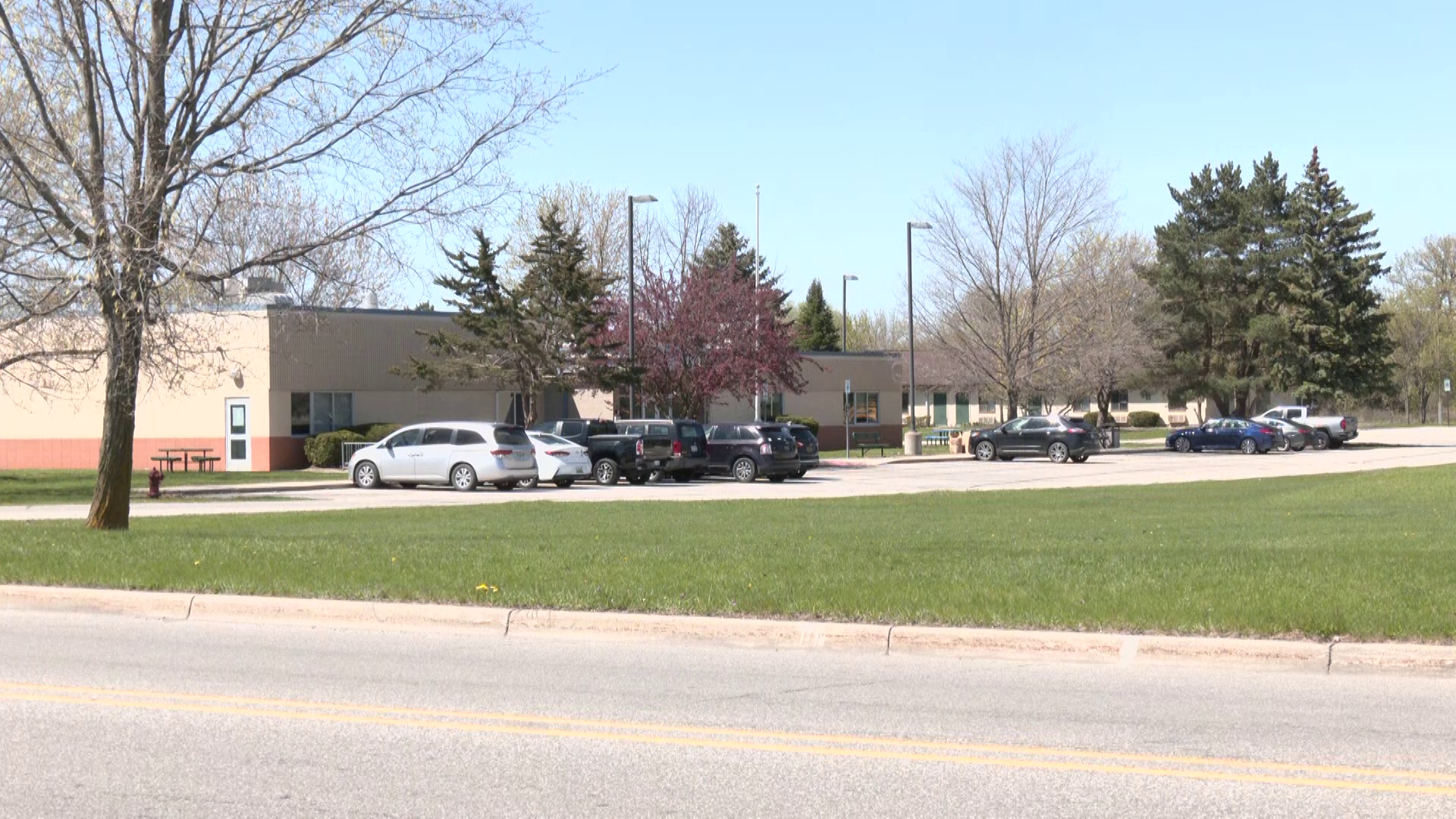Conservation officers from the Michigan Department of Natural Resources and ice rescue personnel worked Wednesday to try to recover a dozen elk that died Tuesday after falling through the ice on a private lake in Otsego County.
According to the DNR, the carcasses of three spike bull elk, five cows and three calves were recovered from the lake. They say the remaining elk carcass were not found, and report that the ice measured about two inches where the elk fell through, with the water about 50 feet deep.
“This is a very tragic and unfortunate event,” said DNR Director Dan Eichinger. “Elk are an important species in Michigan’s successful conservation history. We are indebted to the conservation officers and hunting guides who tried to help in responding to this incident Tuesday afternoon.”
The DNR says the incident began around 3:30 p.m. Tuesday when conservation officers were called by an elk-hunting guide, who reported that 10-12 elk had fallen through the ice on Crapo Lake, which is located 20 miles northeast of Grayling.
The guide told officers that he, another guide and their hunting party had come to Crapo Lake’s private hunting property and sighted the elk about 100 yards from the main road. They had been granted permission to be on the property.
Conservation officers arrived about 30 minutes after receiving the call, and found the two hunting guides who reported the incident in a rowboat, who were attempting to cut an escape path through the ice for the elk with a chainsaw.
“The ice was approximately 5 to 6 inches thick, and the two were making almost no progress,” said Sgt. Mark Depew of the DNR Law Enforcement Division. “For the safety of the guides, conservation officers ordered them off the ice to prevent another tragedy. Given the weight of the animals and the relatively thin ice, there were no safe options available for saving or recovering the elk alive.”
According to DNR Wildlife Division Chief Jared Duquette, there are anecdotal reports from other states of similar incidents occurring with elk.
Lt. Jim Gorno of the DNR Law Enforcement Division notes that there are instances reported each winter of deer, moose or dogs falling through the ice of lakes and streams. In some cases, well-intentioned people have endangered their own lives in attempts to try to save the animals, sometimes with fatal results.
“We remind people that no ice is safe ice,” Gorno stated. “Putting yourself in danger of drowning is not an acceptable risk.”
Chief Gary Hagler of the DNR Law Enforcement Division says conservation officers are investigating Tuesday’s incident, and states that they are looking into it to make sure no game hunting violations of any kind happened.
According to Lt. Gorno, the elk will be processed by local butchers and processors, and the meat will be donated to local charities and food banks for distribution.
Standard Provision of Alpena will be doing the processing, which will be paid for by Safari Club International and Hunters Harvest.
Chief Duquette said the loss of the elk will not reduce the elk herd in the northern Lower Peninsula, and says he does not expect the loss to affect elk-hunting quotas for 2022.
The DNR says the elk herd today is closely monitored, and carefully regulated elk hunts happen each fall with two hunt periods.
Hunt Period 1 is in Aug./Sept. and Hunt Period 2 is in Dec. The DNR says during the hunt this fall, 73 elk were taken by hunters.
To learn more about Michigan’s elk herd,
© 2023 - 910 Media Group


